There’s a reason so many Boomers are trading empty nests for wagging tails. Beyond the warm cuddles and loyal companionship, dogs offer a surprising array of health perks that go far beyond what most people expect. From lowering blood pressure to easing loneliness, these furry companions are proving to be four-legged wellness coaches in disguise. If you’re in your 50s, 60s, or beyond, owning a dog could be one of the smartest decisions you make for your body and mind. Discover 12 science-backed, joy-filled reasons why life with a dog just might be the secret to aging well.
1. Brain Power Boost
Dog owners often experience better memory retention and mental sharpness as they age. The daily mental stimulation of remembering feeding schedules, commands, and care routines creates healthy brain patterns that fight cognitive decline.
Studies show that the problem-solving involved in dog ownership activates crucial neural pathways. Even simple activities like teaching new tricks challenge the brain in positive ways.
Many boomers report improved focus and mental clarity after adopting a dog. The mental engagement required to understand and respond to a dog’s needs provides a natural, enjoyable form of brain exercise that keeps minds active and alert.
2. Heart-Healthy Movement
Walking the dog isn’t just good for your furry friend—it’s a consistent form of exercise that many boomers might otherwise skip. Regular dog walks can add up to 2,760 extra steps daily, according to research from Michigan State University.
The gentle, low-impact nature of dog walking makes it perfect for aging bodies. Unlike intense workouts that might feel intimidating, walking with a dog feels more like companionship than exercise.
Joint mobility improves with this regular movement. The combination of fresh air, natural vitamin D from sunshine, and cardiovascular activity creates a perfect recipe for heart health without the intimidation of a formal exercise program.
3. Natural Heart Medicine
Something magical happens when you pet your dog—your blood pressure actually drops! This isn’t just a feeling; it’s backed by science. Regular interaction with dogs has been shown to lower blood pressure readings and improve cholesterol profiles.
The calming effect extends beyond the moment of petting. Dog owners tend to maintain more stable blood pressure throughout their day compared to those without pets.
Cardiovascular improvements aren’t just physical—they’re chemical too. The reduction in stress hormones like cortisol creates a heart-protective environment in your body. Many cardiologists now recognize pet ownership as a complementary approach to heart health alongside traditional treatments.
4. Anxiety Antidote
The simple act of stroking your dog’s fur triggers a flood of oxytocin—often called the ‘love hormone’—creating an instant calming effect. This chemical reaction works faster than many anti-anxiety medications and comes without side effects.
Dogs naturally pull us into the present moment, breaking cycles of worry about the past or future. Their uncomplicated joy serves as a constant reminder to appreciate simple pleasures.
For boomers facing major life transitions like retirement or downsizing, a dog’s steady presence provides emotional stability. The rhythmic sound of a dog’s breathing or heartbeat has even been shown to synchronize with our own, physically slowing racing hearts during anxious moments.
5. Faithful Companionship
Empty nest syndrome and retirement can create unexpected gaps in social connection. Dogs fill these spaces with their constant, judgment-free presence that doesn’t depend on phone calls or scheduled visits.
Unlike human relationships that sometimes grow complicated, the straightforward nature of canine companionship offers pure emotional support. Dogs don’t care about your past mistakes, career achievements, or financial status—they simply value your presence.
The predictable routine of caring for a dog creates a sense of being needed. This feeling of being essential to another living being’s wellbeing counters isolation that many boomers experience, especially those living alone after losing a spouse or partner.
6. Daily Direction Finder
Morning walks, feeding times, play sessions—dogs thrive on predictable schedules that inadvertently create healthy routines for their owners. This natural structure prevents the aimless drift that sometimes accompanies retirement.
The responsibility of dog ownership provides meaningful purpose beyond self-care. Having another being depend on you creates a powerful reason to maintain healthy habits even on difficult days.
Many boomers report that their dogs get them out of bed on mornings when motivation might otherwise be lacking. The accountability of pet ownership becomes particularly valuable during transitional periods like retirement or after losing a spouse, when previous daily structures suddenly disappear.
7. Neighborhood Connection Maker
Dogs act as natural social catalysts, creating opportunities for conversations that might never happen otherwise. Studies show dog walkers have five times more positive social interactions in their neighborhoods than those walking alone.
Regular encounters at dog parks or along walking routes often blossom into meaningful friendships. These connections develop organically through shared interests rather than forced social situations.
For boomers who’ve relocated or lost their usual social circles, dogs provide an instant community connection. The simple question “What’s your dog’s name?” opens doors to relationships that combat isolation and expand social networks, creating vital support systems that contribute to overall wellbeing and longevity.
8. Mood-Boosting Buddy
The biochemical impact of dog ownership is remarkable—interacting with dogs increases serotonin and dopamine, the body’s natural feel-good chemicals. This creates a genuine happiness effect that can help counter depression common in later years.
Dogs also provide comic relief with their playful antics and unique personalities. Their uncomplicated joy becomes contagious, offering perspective during challenging times.
The unconditional positive regard from a dog creates a powerful emotional anchor. Unlike humans who might grow distant during difficult periods, a dog’s affection remains constant regardless of circumstances, providing emotional stability that buffers against mood fluctuations and creates a foundation for psychological resilience.
9. Home Security Partner
Beyond emotional benefits, dogs provide practical security that helps many boomers maintain independent living longer. Their heightened senses detect potential dangers—from approaching strangers to smoke—often before humans notice anything unusual.
This natural alertness creates peace of mind, particularly for those living alone. Many boomers sleep more soundly knowing their canine companion will alert them to unexpected noises or situations.
The physical presence of a dog often deters potential intruders, regardless of the dog’s actual protective abilities. This added layer of security supports aging in place, allowing many boomers to remain in their homes with greater confidence and reduced anxiety about living independently.
10. Natural Pain Relief
The comfort of a warm dog resting against an achy joint has provided relief to countless boomers dealing with arthritis or chronic pain. This isn’t just psychological—the physical warmth increases blood flow to painful areas.
Pain perception actually changes during positive interactions with dogs. The distraction and joy of playing with or petting a dog activates the brain’s reward centers, temporarily overriding pain signals.
For boomers recovering from surgeries or managing ongoing conditions, dogs provide motivation to keep moving despite discomfort. The gentle exercise of dog care maintains crucial mobility that might otherwise be lost to pain-related inactivity, creating a positive cycle where movement reduces stiffness and improves overall function.
11. Emotional Support System
Dogs possess an uncanny ability to sense emotional distress, often responding with increased attention during difficult times. This natural empathy provides comfort during grief, depression, or anxiety that many boomers face.
The non-judgmental presence of a dog creates a safe space for emotional expression. Many people find it easier to process difficult feelings with their dog nearby—a phenomenon therapists increasingly recognize and incorporate into treatment plans.
For boomers dealing with major life transitions, dogs provide emotional continuity. Their consistent affection helps bridge difficult periods like retirement adjustment, relocation, or loss of loved ones, providing stability when other aspects of life feel uncertain.
12. Mind-Sharpening Companion
The mental engagement required to communicate with another species creates unique cognitive benefits. Understanding a dog’s body language, anticipating their needs, and responding appropriately exercises parts of the brain involved in empathy and social connection.
Dogs introduce novelty into daily life through their spontaneous behaviors and reactions. This unpredictability keeps the brain engaged and adaptive, countering the cognitive decline that can come with overly routine lifestyles.
Training activities create perfect brain exercises for boomers. Teaching new commands or tricks requires focus, patience, and problem-solving—all vital cognitive skills that benefit from regular practice, creating mental stimulation that feels like play rather than work.

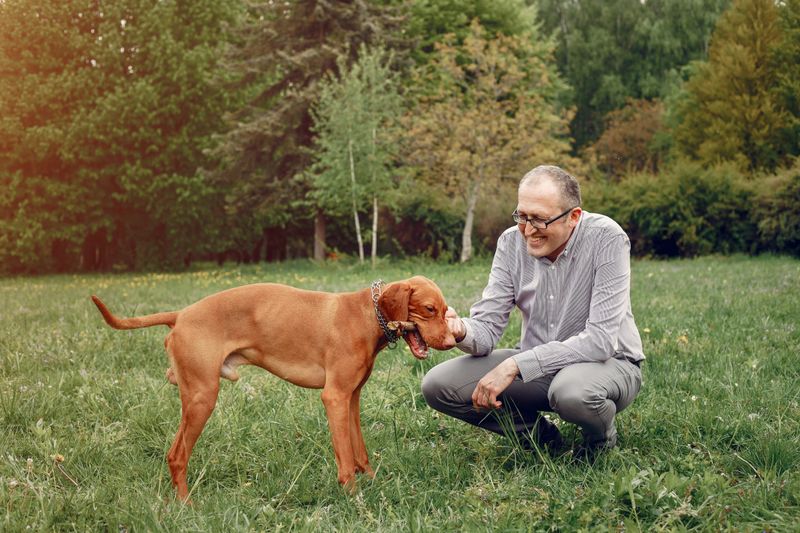
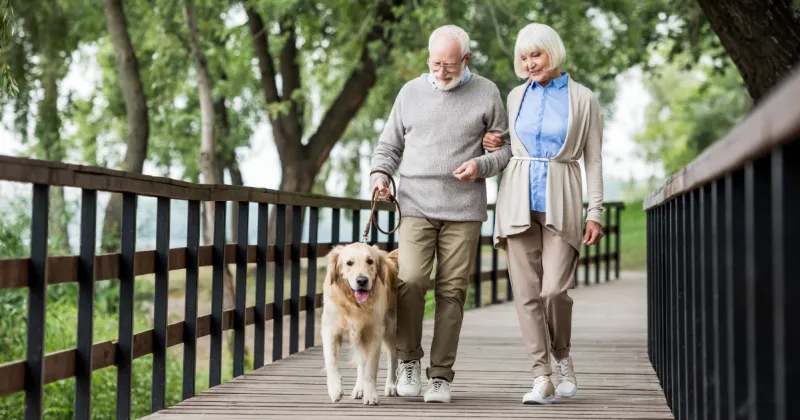


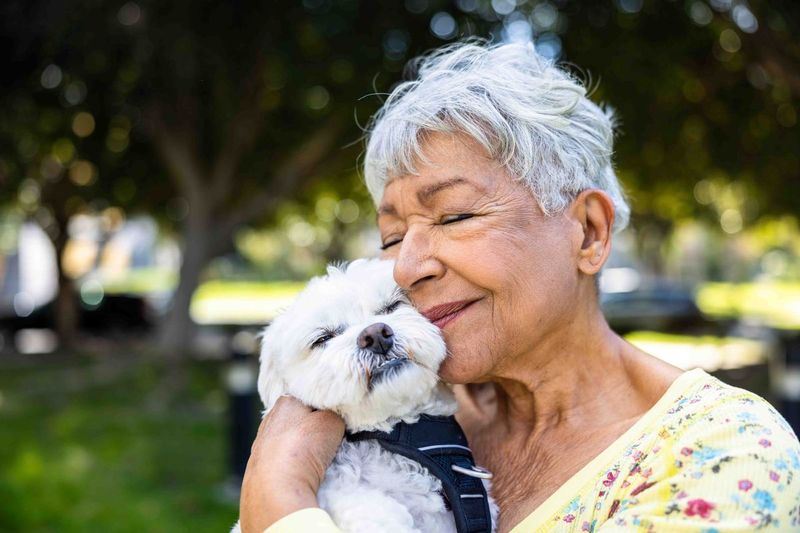
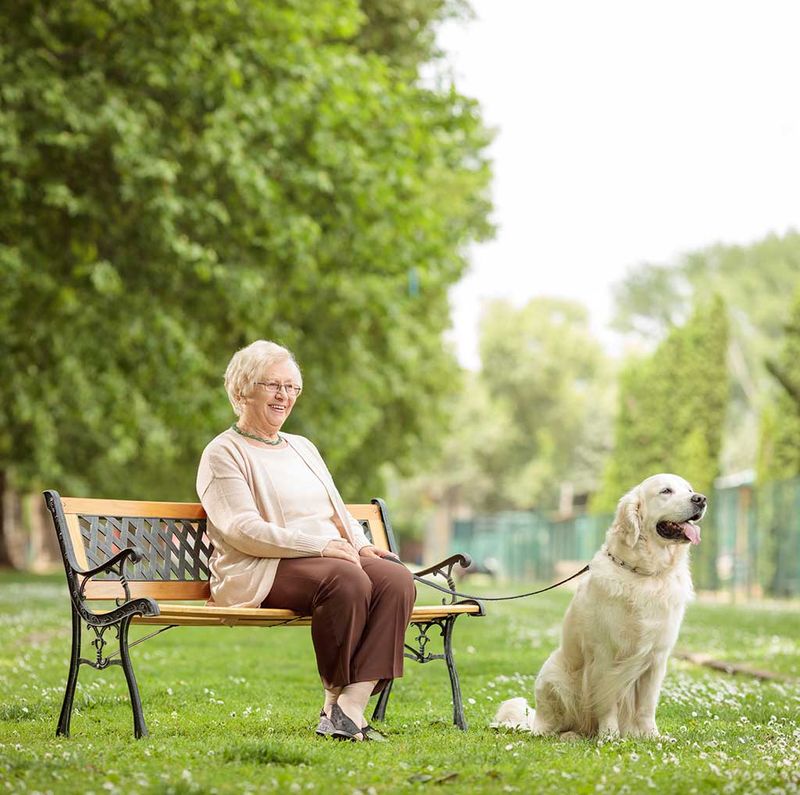
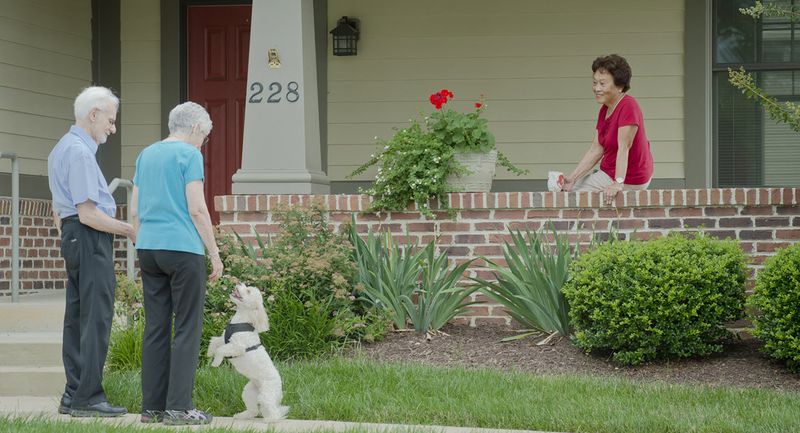
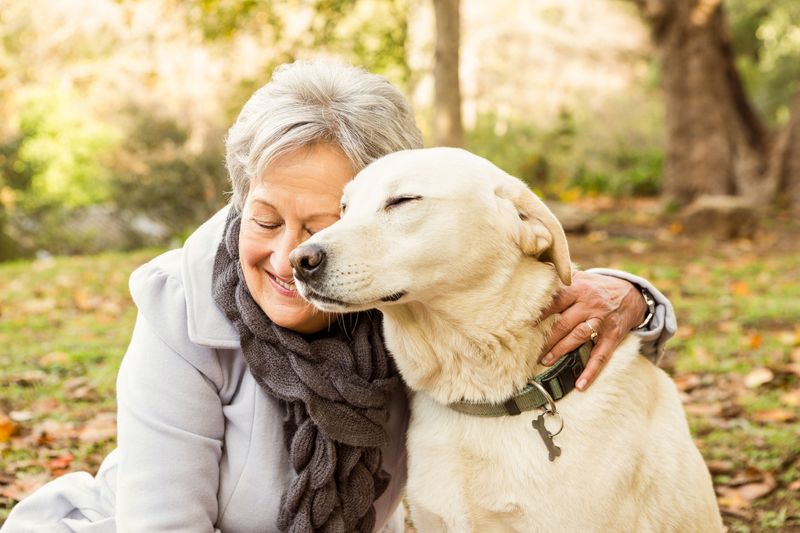


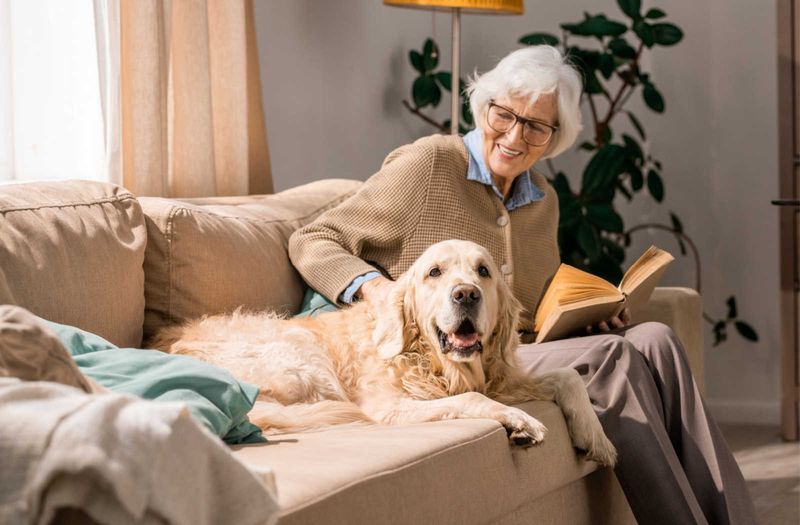
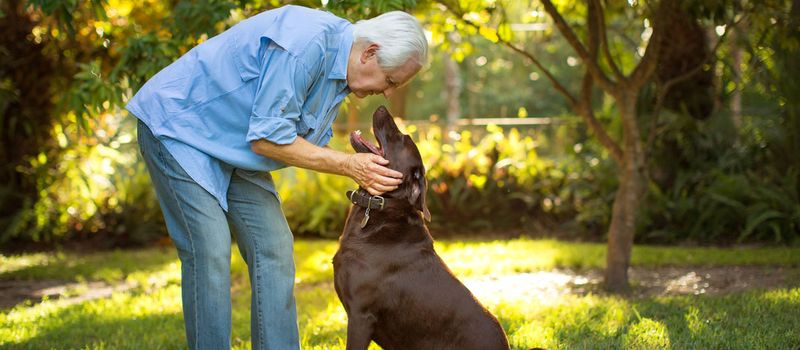
Comments
Loading…